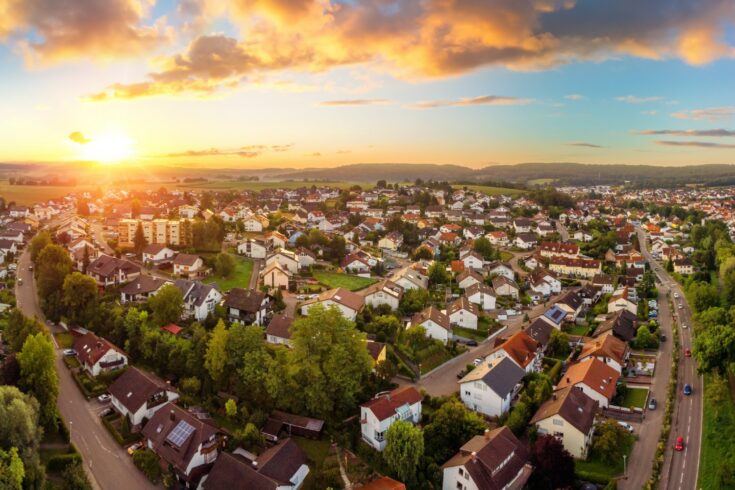UKRI has invested £3.6 million in three networks to improve economic and social wellbeing and create more sustainable, resilient, communities.
Urban environments across the UK are set to benefit from new research that will explore ways to create more sustainable and prosperous communities.
This is thanks to a major investment in three pioneering networks delivered by the:
- Engineering and Physical Sciences Research Council (EPSRC)
- Natural Environment Research Council (NERC)
- Arts and Humanities Research Council (AHRC).
Key challenges
Each network will focus on key challenges facing UK cities or environments in one of the three areas:
- green infrastructure development linked to:
- blue infrastructure (water elements):
- rivers
- canals
- ponds
- wetlands
- floodplains
- water treatment facilities
- brown infrastructure:
- soil survey techniques
- soil quality
- grey infrastructure:
- buildings
- roads
- other urban constructions
- blue infrastructure (water elements):
- low carbon connected digital infrastructure with considerations between urban and rural environments
- sustainable urban systems, to become more resilient and adaptable across natural systems and infrastructure.
Funded networks
Urban systems and infrastructure
The ‘Port and Coastal Cities and Towns Network’ will work to improve the sustainability of urban systems and infrastructure in coastal UK.
Many coastal communities are under-developed, underperform economically and have low social wellbeing.
The network, led by Professor William Powrie at University of Southampton will work to identify ways to take advantage of their location and provide resilient, sustainable regeneration solutions.
Digital infrastructure
A ‘Green, Connected and Prosperous Britain’ will look at the ways in which better digital infrastructure can help to build more sustainable, economically successful communities in the UK.
Led by Professor Sandra Dudley at London South Bank University, the network will model new ways that smart technology can:
- help create efficiencies
- help decentralise energy production and boost the effective use of local renewable generation
- influence human behaviour.
Poverty and deprivation
‘Reclaiming Forgotten Cities’ will explore ways to use urban green and blue spaces to help cities adapt to current and future challenges.
It will also find ways to address the way poverty and deprivation amplify urban pressures.
The network is led by Professor Prashant Kumar at the University of Surrey’s Global Centre for Clean Air Research.
The network will focus on ‘forgotten cities’, those with severe pockets of deprivation, and smaller cities.
These cities have typically lacked funding or political visibility and have not been the focus of research and innovation investment.
Experts from different disciplines
These networks, which will begin in March 2022, all feature a team of expert researchers drawn from different disciplines.
EPSRC Director for Research Base Jane Nicholson said:
These cross-sector and multidisciplinary networks will bring engineering, environmental, arts and humanities and economic and social researchers together to identify opportunities and address complex challenges.
All three networks speak directly to recent government strategies, including the Net Zero Strategy and the Levelling Up White Paper, and we look forward to seeing how their work can directly improve lives.

